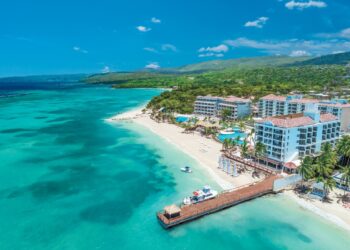A hundred dollars will soon buy you ”“ or your company”™s head of international sales ”“ an easy pass through more airport-security checkpoints.
Business travel associations hailed the enactment in early August of the federal law titled Implementing Recommendations of the 9/11 Commission Act of 2007, which is intended to speed travel through U.S. borders while maintaining security.
The bill comes nearly one year after British officials revealed a terrorist plot to destroy U.S.-bound airliners by smuggling liquid chemicals aboard in seemingly innocuous containers, then mixing them to form explosives. The plot was the foremost issue on the minds of corporate travel planners, according to a January poll by the National Business Travelers Association.
The measure should have a mixed impact for corporate and leisure travelers, said Robin Buzzeo, president of the Connecticut-Westchester Business Travel Association, with gate times improving even as passport requirements stiffen for travel to Canada, the Caribbean and Mexico.
According to the Travel Industries Association, overseas travel to the United States has fallen 17 percent since its peak in 2000, with a cumulative cost to the U.S. economy of $100 billion in lost visitor spending, almost 200,000 jobs and $16 billion in lost tax receipts.
In a June poll by the Travel Business Roundtable, U.S. mayors blamed the difficulties in obtaining a U.S. visa; uncertainty regarding U.S. travel requirements; and unfriendly customs officials.
The 9/11 bill is expected to allow more legitimate business and leisure travelers to visit the United States visa-free, while enhancing security through a departure-tracking system, increased information sharing between nations and other controls. Connecticut Sen. Joe Lieberman helped craft the legislation as chairman of the U.S. Senate Homeland Security and Governmental Affairs Committee.
Since 2005, frequent flyers have been able to buy into the federal Registered Traveler Program (RTP), in which they are able to buy a $100 boarding prescreening card with biometric identification information.
For business travelers, the “big three” benefits of RTP are that they can keep coats on; shoes on; and they do not have to pull out laptop computers for inspection.
Among regional airports, RTP is offered in three terminals at John F. Kennedy International Airport; and in Terminal B at Newark Liberty Airport. LaGuardia International Airport, Westchester County Airport and Albany International Airport are in the final stages of building out RTP.
Bill Connors, executive director of the National Business Travel Association, testified in Congress last month to support continued expansion of RTP. As more airports add the program, he expects RT registration companies will place enrollment kiosks at hotels, convention centers and even corporate headquarters. Such grassroots enrollment should only spur additional airports to sign on, he thinks, and RTP will achieve its aims.
While there is some value in being able to use the program on even one flight, Connors said, business travelers want the predictability of being able to count on the program”™s presence at any major airport terminal.
“One of the keys to having (RTP) realize its potential ”¦ is having the program reach sufficient scale,” Connors said. “Travelers to top airports should have access to (RTP) programs on all legs of their trip.”
With the 9/11 bill, Congress has authorized an international version of the program intended in part to help employees of multinational companies travel.
Â
The federal bill eases some of the scrutiny international travelers have faced while entering the United States. The government is enhancing its visa waiver program, allowing foreign citizens to travel here without undergoing a formal visa review. The U.S. Department of Homeland Security must still verify the departure of international visitors.
South Korea, a major trading partner, and several countries in Eastern Europe have yet to be admitted to the visa waiver program. To be admitted, a country must agree to cooperate with U.S. authorities on counterterrorism issues, and demonstrate that fewer than 10 percent of its citizens are refused a U.S. visa.
The 9/11 bill expands the model ports of entry program at the nation”™s 20 busiest airports that handle 90 percent of all international arrivals, from the program”™s initial experiment at Washington Dulles International Airport and George Bush Intercontinental Airport in Houston. The U.S. Customs and Border Patrol is also hiring 200 additional officers, which is expected to both speed the customs process for arriving passengers and improve security checks.
With record passport applications flooding in due to the 2005 implementation of the Western Hemisphere Travel Initiative, which required U.S. citizens to have passports to re-enter the United States from Canada, the Caribbean and Mexico, the federal government is allowing entry to the United States through September with a government photo identification and proof of a passport application.
The government is currently developing a “Secure Flight” program to better vet unknown travelers to the United States.
The state of New York also took steps to improve the airport experience, enacting in early August a “bill of rights” to force airlines operating out of New York airports to provide passengers with food, water, fresh air, power and working restrooms on any flight that has left the gate and been on the tarmac for more than three hours.
In addition, the New York bill establishes an airline consumer advocate within the state Consumer Protection Board to oversee compliance and requires carriers to provide complaint procedures at all service desks.
Â


















